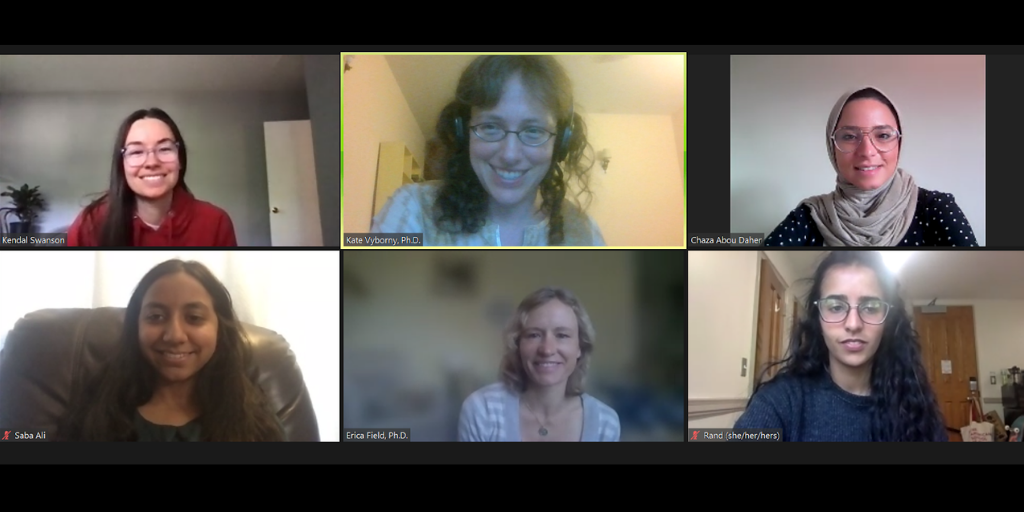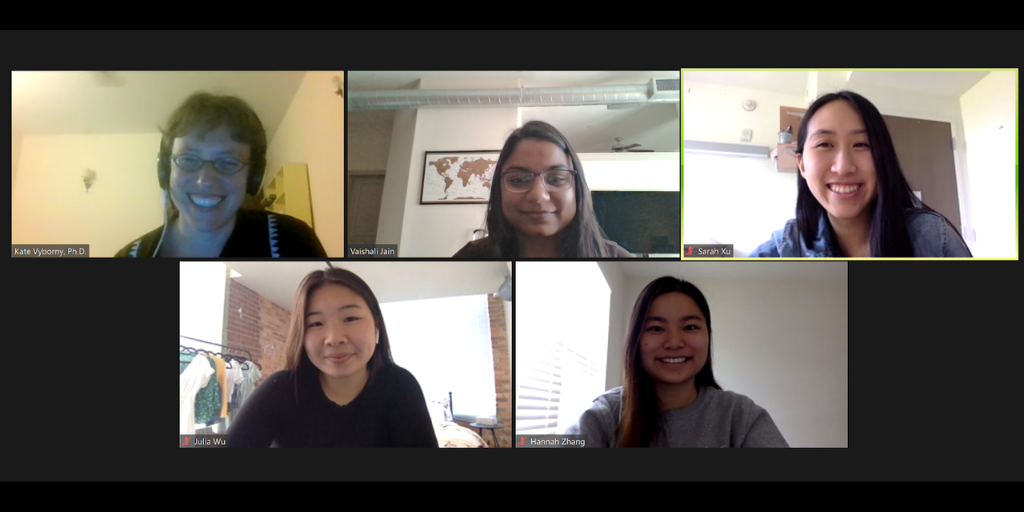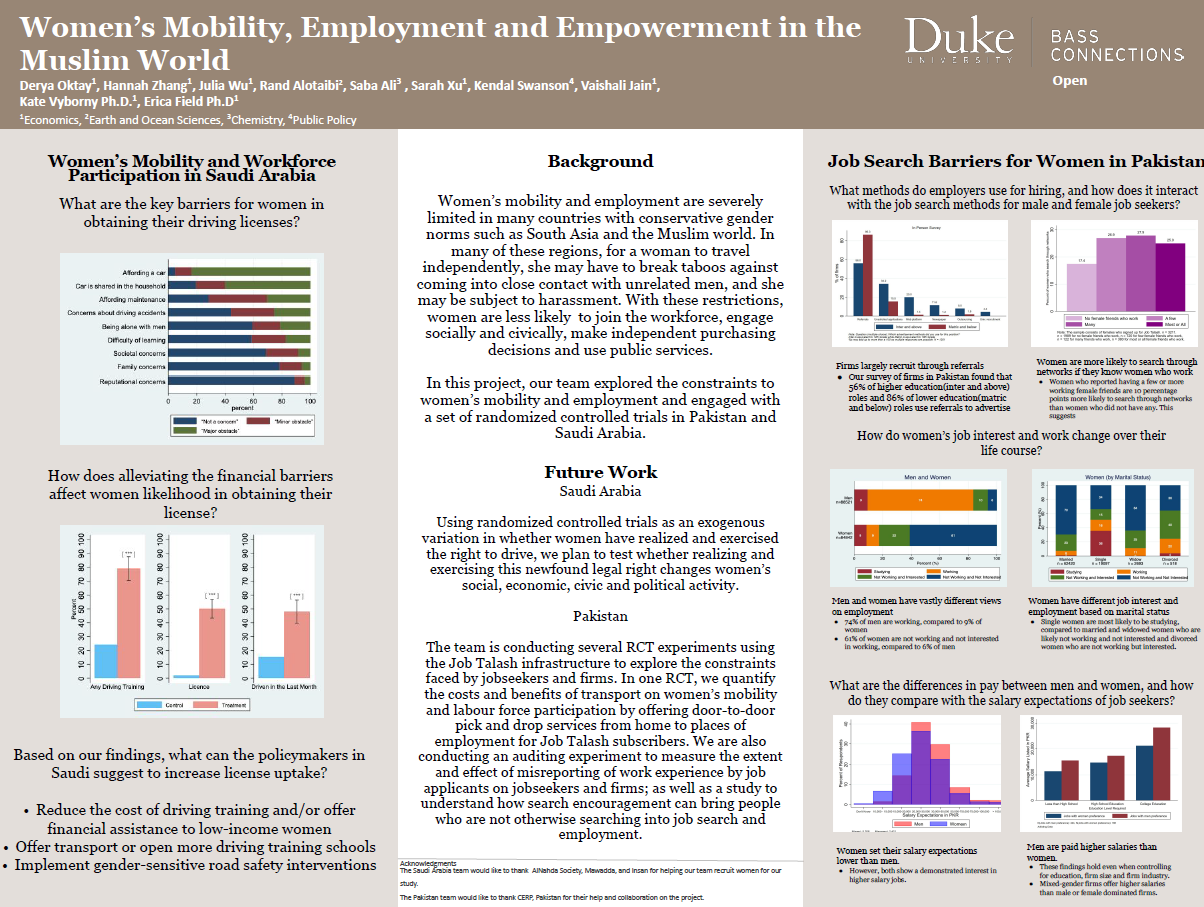Barriers to Women’s Empowerment in the Pakistan and Saudi Arabia
Project Team
Team profile by members of the Women’s Mobility, Employment and Empowerment in the Muslim World project team
In Pakistan and Saudi Arabia, women’s mobility and employment is limited due to conservative gender norms. Our Bass Connections team engaged with data from a set of randomized controlled trials run by the DevLab at Duke in Pakistan and Saudi Arabia. The Saudi sub-team analyzed and collected data on mobility and its effect on women’s empowerment. The Pakistan sub-team analyzed data on barriers Pakistani women face in their job search.

Women’s Mobility and Workforce Participation in Saudi Arabia
The Saudi government lifted the driving ban on women June 2018. Two years after the ban was lifted, only 2% of women in the country obtained their driving license. The main objective of our work on this study was to analyze the key barriers for this low uptake. The findings from this analysis have been developed into a policy brief, which will be published by Al-Nahda and Harvard’s Evidence for Policy Design (EPoD).
After analyzing the data collected from our baseline surveys, we found that there were four major categories of concerns that hindered women in acquiring their licenses:
- Financial barriers
- Car ownership
- Societal/familial constraints
- Road safety and harassment concerns
Our team found when eliminating financial constraints, women were more likely to obtain their driving licenses. Our team offered free driving training, group transportation, and waived test fees for our treatment group. Approximately 48% of women in our treatment group received their driving license, compared to only 2% in our control group (consistent with the national average). This indicates that policy efforts should focus on decreasing the financial barriers to obtaining driving licenses in order to significantly increase the number of Saudi women behind the wheel.
More recently our team has been focusing on designing the survey instrument to follow up with the same women to measure the social, political, and economic impacts of this newfound legal right.

Job Search Barriers for Women in Pakistan
The Pakistan sub-team analyzed data from “Job Talash”, a job-matching platform that sends job ads via text message to people in Lahore, Pakistan, that provides information on the job-seeker and firm side of the labor market. Through this data, we studied barriers women face in the Pakistani labor market.
Our key research questions were:
- How do people search for jobs and how do firms search for employees in Pakistan?
- What does this reveal about barriers women face in the job search?
- Are women who have strong networks more engaged in job search?How do women’s job interest and work status change over their life course?
- What are the differences in pay between men and women, and how does it compare with the salary expectations of job seekers?
Through analyzing data and creating visualizations in STATA, we discovered insights into female participation in the Pakistani labor force including that there was a greater difference in men and women’s salaries at higher levels of education and that networks play a vital role in searching for jobs but women lack access to networks. We learned how to code visualizations in STATA, critically analyze our results, and synthesize our findings in policy briefs and blog posts.
We published our findings in a policy brief Analyzing Gender Differences in Pay in the Pakistani Labor Market with IZA - Institute of Labor Economics and a blog post Barriers faced by women in labour market participation: Evidence from Pakistan on the International Growth Centre website. Additionally, we created a set of visualizations on Pakistani women’s participation in the labor force that will be used in further research.
Women's Mobility, Employment and Empowerment in the Muslin World
Poster by Derya Oktay, Hanna Zhang, Julia Wu, Rand Alotaibi, Saba Ali, Sarah Xu, Kendal Swanson, Vaishali Jain, Kate Vyborny and Erica Field

